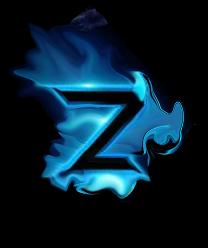I was reading about the allegations against Russell Brand and couldn’t help but wonder how it works legally that his revenue can be blocked based on allegations and before any juridical ruling.
Don’t get me wrong I don’t know much about the guy and what he did or didn’t do and agree that anyone should be punished according to their crimes.
But how is this possible with the principal of innocent until proven guilty? I’d be happy if someone could explain me.

In America, you have no rights as a worker. Get caught or alleged to have done something unethical? You will be fired long before charges are filed or a conviction, if those things ever happen.
In the same way, YouTube isn’t legally obligated to do business with people who a) are unpopular or b) otherwise misalign with whatever they think their brand is.
- shiveyarbles ( @shiveyarbles@beehaw.org ) 20•2 years ago
IDGAF this idiot is scamming people with his antivax, pro Russian bs he can eat a bag of dicks and take a dive into the sun.

Was he ever anti-vax?
All I know was that he said that the pharmaceutical companies created vaccines with research funded by the people’s taxes and then kept the massive profits all for themselves… which is true.

First they came for the dickbags, and I said nothing…

It’s about ads. The great thing about putting videos on YouTube is that Google does the work of selling ad slots for you, the not-so-great thing is that because those advertisers are actually Google’s customers, if they think they might be upset to see their ad running in your video, they’ll err on the side of pulling it.
But I daresay if Russell Brand had advertisers working with him directly, most of them would also be suspending their relationships with him right now; nobody wants anything to do with this sort of allegation.

“Innocent until proven guilty” very specifically applies to punishment by the courts and government (which would be UK courts in this case). Everyone else can still think he’s a sleazebag and want nothing to do with him without knowing exactly which crimes he may have committed.
I could absolutely be fired by my employer for harassing colleagues in a way that wouldn’t be outright illegal. Same here for streaming companies, traditional TV production companies, etc not wanting to work with him.

Here a more accurate metaphor would be being fired for unverified accusations of harassment.

Don’t get too caught up on the employee metaphor as Brand is not an employee of YouTube so he doesn’t get the same legal protections an employee would get. That said if you were accused of harassment at a UK firm the company would have to investigate it, and quite possibly suspend you while it did and then fire you if it felt the claim was valid. The key point is that individuals and businesses don’t need to pretend they haven’t heard the allegations and its reasonable for them to act on it. Even within the courts while considered innocent until proven guilty it might be deemed reasonable to restrict your liberties until a verdict has been reached.

Do you live in a country where the government would put a gun to YouTube’s head and say 'YOU HAVE TO KEEP BROADCASTING THIS MAN’S CHANNEL, PUT ADS ON IT, AND SHARE THE AD REVENUE WITH HIM, WHETHER YOU WANT TO OR NOT, UNTIL AND UNLESS HE IS CONVICTED OF A CRIME"?
That seems weird.

Depends on the contract between that man and YouTube. Most countries are strong in enforcing contract terms.

The idea that Google would give anyone a contract that says something other than “we’ll fuck you if we feel like it.” Hahahaha.

True, but that comment was still badly conceived. Because pretty much all countries would absolutely crack down on a platform, should there be a contract that states that there must be a conviction, and no morality clause. This can absolutely legally be in a contract.

YouTube can do whatever the fuck they want on their network. Full stop.

Google is a privately owned company. Brand could try to sue, but he doesn’t have a leg to stand on.

This is the key bit:
A spokesperson for YouTube said: “We have suspended monetisation on Russell Brand’s channel for violating our creator responsibility policy. If a creator’s off-platform behaviour harms our users, employees or ecosystem, we take action to protect the community.”
Somewhere in all the T&Cs you skim through is this clause - you break it, they withhold your money. If you are cleared, I assume they open the taps again and give you the money you would have earned.

In the case of youtube, there are 2 ways you getting paid can be paused. In the case of, for instance, a copyright claim, your video will either be taken down completely or, if left up, will typically still be monetized with the money going into escrow until the copyright claim is resolved, with the winning party getting paid. The 2nd kind is this kind, where they deem your video isn’t monetizable. Likely they think their advertisers would be upset to have their advertisers next to you or your content. In this case they just don’t run any adds at all, so there is no money for you to be given if the monetization is resumed.

Thanks for the clarification. 👍

Talk about begging the question. Do you concern troll for a fee?

It’s a private company, it can choose which third party content suppliers to do business with.
Is that not the case where you live?

Does “de-monetization” simply mean Google isn’t paying him, or that they’re removing all ads (and revenue for themselves) from his videos?

Both.

Google is a private company that can choose who to do business with. By signing up to use the platform, you have to agree to their terms of service which state that they can decide to stop doing business with you at any time for any reason they deem. In this case, they chose to stop doing business with him by demonetizing his videos due to the allegations against him. He’s free to sue them, but that’s a battle that will be hard fought and could take years.
This is the best summary I could come up with:
YouTube has suspended Russell Brand’s ability to earn money on the platform following allegations of rape and sexual assault in a massive hit to his finances.
The video-sharing and social media site said it had suspended Brand’s channel from the YouTube partner programme after serious allegations against him, meaning his videos are no longer able to be monetised on the platform.
The 48-year-old comedian and actor has been accused of rape, assault and emotional abuse between 2006 and 2013, when he was at the height of his fame working for the BBC, Channel 4 and starring in Hollywood films.
Suspending Brand’s ability to earn money from his YouTube channel is a major blow to the comedian’s finances.
YouTube pays creators a cut of the money it earns from showing adverts next to their videos, which can be a highly lucrative business.
A spokesperson for YouTube said: “We have suspended monetisation on Russell Brand’s channel for violating our creator responsibility policy.
The original article contains 600 words, the summary contains 160 words. Saved 73%. I’m a bot and I’m open source!

I like all the people here saying that Google as a private company can do whatever they want and it’s perfectly fine, but then Musk’s takeover of Twitter and his subsequent policies are the spawn of Satan.

